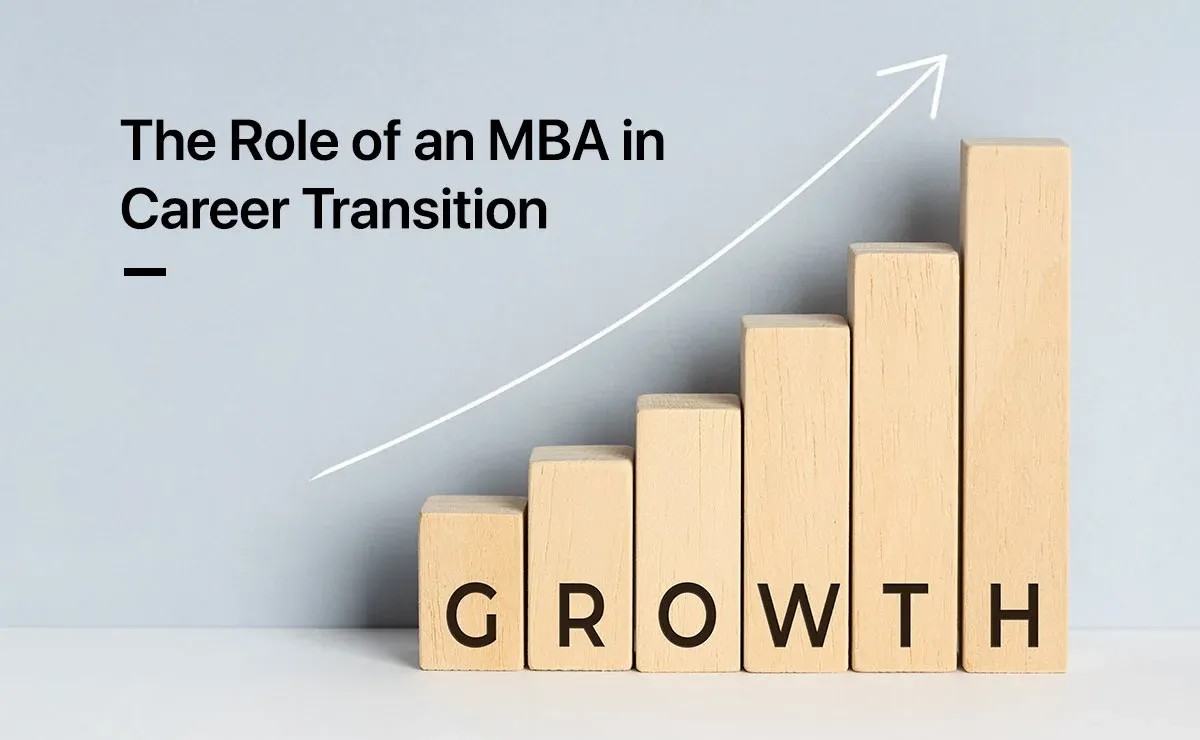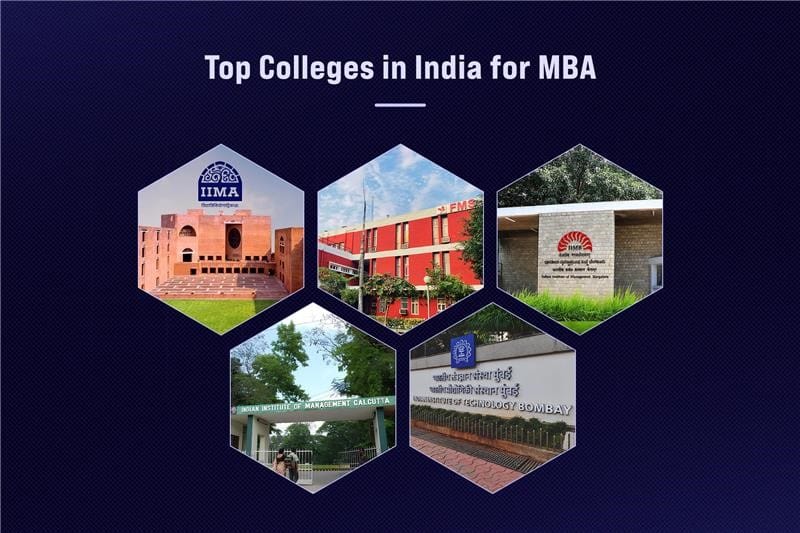Can we do an MBA after BCom?

For students looking to climb the corporate ladder, transitioning from a Bachelor of Commerce (BCom) to a Master of Business Administration (MBA) is a logical step. The contemporary business environment undergoes constant transformation, creating significant demand for individuals who possess robust management capabilities.
Pursuing an MBA after BCom not only strengthens your managerial expertise but also unlocks exciting career opportunities across industries. This guide will explore the benefits of an MBA, the essential leadership skills it develops, and the top institutions that can help you succeed.
Why Do an MBA After BCom?
A Bachelor of Commerce qualification provides you with comprehensive groundwork in business principles, financial operations, and accountancy. However, an MBA builds on this knowledge by integrating leadership, strategy, and management skills. In the rapidly evolving corporate sector, pursuing an MBA can dramatically elevate your career trajectory, opening doors to leadership roles and higher compensation.

Here is how an MBA provides the returns on your investments:
- Expanding Career Opportunities: A BCom degree focuses on finance, accounting, and taxation. However, an MBA can open doors to managerial and leadership roles in diverse fields like marketing, HR, business analytics, international business, and entrepreneurship.
- Higher Earning Potential: An MBA can substantially enhance your income prospects. While BCom graduates may start at INR 3–5 LPA, MBA graduates from top institutions can earn 10–30 LPA, with better job stability and faster career progression.
- Stronger Business and Entrepreneurial Knowledge: An MBA equips you with the right tools and industry insights like business planning, financial management, and market research, essential for starting and running a successful business.
- Global Exposure and Networking: MBA programs offer networking through internships, alumni connections, and global opportunities like exchange programs, giving you a competitive edge in a globalized world.
- Versatile Specializations: An MBA allows you to specialize in high-demand areas like Finance, Marketing, Business Analytics, HR, IT, or Operations, making you an expert in your chosen field.
- Enhanced Soft Skills: An MBA refines critical abilities like effective communication, teamwork, and time management, which are essential for career growth and meeting employer expectations.
What Skills Does an MBA Provide?
An MBA nurtures both hard skills (specialized expertise) and soft kills (interpersonal aptitudes) that are fundamental for achieving success within commercial environments.
Hard Skills:
Marketing Management
On the technical side, an MBA provides a strong foundation in areas such as marketing management. It encompasses grasping market trends, consumer behavior, and competitive dynamics. Students acquire the ability to craft marketing strategies, establish brands, and deliver customer value.
Operations and Supply Chain
MBA graduates master the art of optimizing operations, cutting costs, and boosting efficiency, ensuring seamless delivery of products and services. Managing logistics, production, and process optimization are key components of this skill.
Business Analytics
In our contemporary information-centric era, the capability to evaluate statistics and extract actionable data is vital. Hence, MBA programs teach students how to use the latest industry relevant tools and techniques for data analysis, enabling them to make informed decisions and develop effective strategies.
Entrepreneurship
For individuals aspiring to establish their own commercial enterprises, entrepreneurial competencies are exceptionally valuable. MBA programs teach students how to evaluate markets, set goals, and foster innovation, providing the tools needed to turn ideas into successful businesses.
Note that these are just a few illustrations of the hard skills an MBA imparts. Specific skills may change according to the specialization choses by the student.
Soft Skills:
Leadership Skills
Today’s business environment demands not only technical expertise but also the ability to inspire, communicate, and make critical decisions under pressure. An MBA program is designed to refine leadership attributes, ensuring you are prepared for the complex challenges of modern business management.
Communication Skills
During your MBA, students engage in numerous presentations, group discussions, and collaborative projects that hone their ability to convey ideas clearly and persuasively.
These experiences are invaluable as they teach how to articulate strategies, negotiate with stakeholders, and build consensus within diverse teams. Mastering communication not only enhances their professional image but also fosters an environment of transparency and collaboration in the workplace.
Decision-Making Abilities
The ability to make informed decisions is crucial for any leader. MBA curricula emphasize critical thinking and analytical problem-solving through case studies and real-world business scenarios.
Courses in strategy, operations, and economics teach students to evaluate complex situations, weigh risks, and devise practical solutions. As a result, they emerge as confident people with the right expertise to make decisions that drive organizational success.
Adaptability
MBA programs foster adaptability, which is a crucial skill for navigating today's dynamic business landscape. Through simulations and case studies, students learn to adapt to change, innovate, and adjust strategies. This prepares them to lead with resilience, transforming challenges into opportunities for long-term success.
The Role of an MBA in Career Transition
An MBA is a powerful tool for professionals looking to switch industries, move into leadership roles, or start their own businesses. Whether you want to transition into a competitive field, shift from a technical to a managerial role, or become an entrepreneur, an MBA provides the knowledge, skills, and network needed to succeed.

Here’s how an MBA facilitates career growth:
Comprehensive Business Knowledge
An MBA covers essential disciplines like finance, marketing, operations, strategy, and human resource management, offering foundational knowledge for various industries. For non-business professionals, it bridges the gap, equipping them with managerial skills. Specializations enable customization to align with specific career aspirations, such as business analytics or entrepreneurship.
Hands-On Learning
MBA programs prioritize experiential learning via internships, consulting projects, and case studies. Internships offer industry exposure, while projects and simulations enable students to tackle real-world challenges, building hands-on expertise.
Professional Network
An MBA provides networking opportunities with industry leaders, alumni, and peers. Events, guest lectures, and career fairs facilitate connections with potential employers. Alumni networks provide mentorship, job referrals, and career guidance, enhancing job placement opportunities.
Whether you aim to climb the corporate ladder or embark on your own entrepreneurial journey, an MBA opens doors to diverse industries and roles, making career switching feasible. It serves as a bridge between theory and practice, preparing you for the multifaceted challenges of today’s business environment.
Entrance Tests for MBA Admission after BCom
Admission to top MBA programs typically requires clearing competitive entrance examinations. For BCom students aiming to pursue an MBA after graduation, here are some of the most recognized entrance exams:
- CAT (Common Admission Test): Extensively recognized by Indian Institutes of Management and numerous other elite business institutions.
- XAT (Xavier Aptitude Test): Known for its challenging format and is a gateway to several top institutions.
- MAT (Management Aptitude Test): Features multiple test dates and is recognized by numerous B-schools across India.
- CMAT (Common Management Admission Test): Favored by many AICTE-approved institutions.
- GMAT (Graduate Management Admission Test): Essential for those considering an MBA on an international level.
- SNAP (Symbiosis National Aptitude Test): Conducted by Symbiosis International University and widely accepted by its affiliated institutes.
These examinations evaluate a spectrum of abilities, including mathematical proficiency, analytical reasoning, information interpretation, and linguistic competence. Successfully clearing one or more of these tests is a key step toward securing admission into your desired MBA program.
Top Colleges in India for MBA after BCom

Here is a list of the top MBA colleges in India that student can pursue after completing their BCom:
Colleges | Total Fee (INR) | Average Package (INR) |
Faculty of Management Studies, Delhi | 2.32 L | 34.1 LPA |
Indian Institute of Management, Ahmedabad | 34.15 L | 31.58 LPA |
Indian Institute of Management, Bangalore | 26 L | 35.31 LPA |
Indian Institute of Management, Calcutta | 31 L | 35.07 LPA |
Indian Institute of Technology, Bombay | 14.61 L | 29.35 LPA |
Symbiosis Institute of Business Management (SIBM) | 24.2 L | 28.16 LPA |
The Altera Institute: Pioneering Specialized MBA Education
Recognizing that students graduating in 2025 should develop skills for new-age roles, B-schools like the Altera Institute are able carve out a space for themselves in this niche.
Altera Institute has developed a Post Graduate Program (PGP) in Applied Marketing that bridges the gap between academic learning and industry requirements.
Unlike traditional MBA programs, this 15-month curriculum is rigorously designed by industry experts from prominent companies such as HUL, Mamaearth, and Reckitt to prepare students for fast-growing, digital-first roles.
What sets the program apart is its unique USPs:
- The Altera curriculum is crafted by top industry leaders from renowned companies like HUL, Mamaearth, Reckitt, and others.
- The program is delivered entirely by seasoned industry experts, including CXOs and business leaders from over 20 prominent organizations.
- The curriculum emphasizes practical application, allowing students to engage in case competitions, business simulations, and live projects with top D2C brands like TheWholeTruth Foods, Bombay Shaving Co., Pilgrim, and more.
This strategic design ensures graduates are precisely positioned for top roles at premier organizations such as Godrej, Himalaya, Blinkit, and Mamaearth.
If you are a professional seeking a specialized curriculum for digital first careers, the Altera Institute can be the right choice for you.
FAQs
Q1. Which MBA Course Is Best After BCom?
Ans: The ideal MBA program after a BCom depends primarily on your interests and career objectives. If you have a knack for numbers and finance, an MBA in Finance might be the best choice. For those inclined towards creative strategies and market dynamics, an MBA in Marketing can be rewarding.
Other popular specializations include MBA in Operations Management, Business Analytics, Information Technology, and Human Resource Management. Each specialization offers distinct career opportunities, so it’s important to assess your strengths and long-term objectives before making a decision.
Q2. What Is the Salary After BCom and MBA?
Ans: Salary prospects vary depending on factors such as the specialization, the reputation of the institution, and the industry. Typically, BCom graduates start with modest salaries however, after completing an MBA, the average salary can rise significantly. Positions in fields like finance, marketing, and business analytics tend to command higher salaries, reflecting the advanced skills and strategic expertise that an MBA provides.
Q3. Can We Do MBA After BCom Hons?
Ans: Yes, absolutely. Whether you have pursued a general BCom or a BCom (Hons), you are well-prepared to take on an MBA. In fact, a BCom (Hons) may provide even deeper insights into commerce-related subjects, giving you an edge when transitioning into an MBA program. This robust academic background, combined with the comprehensive managerial training provided by an MBA, makes you a highly competitive candidate in the job market.
Summing Up
Transitioning from a BCom to an MBA is a strategic career decision that offers significant benefits. Not only does it deepen your understanding of business operations, but it also equips you with the leadership, communication, and decision-making skills essential for success in today’s corporate world. With a range of top institutions and specialized MBA programs available, BCom graduates have ample opportunities to carve out a fulfilling and high-paying career.
If you’re driven by the desire to lead, innovate, and make impactful decisions, pursuing an MBA after your BCom is an investment in your future that can open countless doors in the world of business. Take the next step, prepare for your entrance exams, and embark on a journey that promises to transform your professional life.





